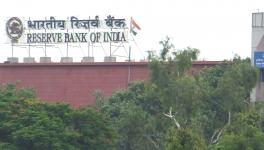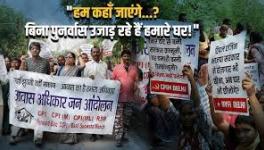BULA Bill Fails to Curb Predatory Lending, Usurps Power of States: People’s Commission

Representational Image. Image Courtesy: Flickr
New Delhi: The People’s Commission on Public Sector and Public Services (PCPSPS), a collective of eminent academics, jurists, erstwhile administrators, trade unionists and social activists, has termed the Banning of Unregulated Lending Activities (BULA) Draft Bill as a threat to state government autonomy as well doing “very little” for poor people from falling into debt traps.
In a statement, the PCPSPS demanded a “strong model law”, as seen in some states, to address exploitative lending practices.
“Instead, it (the BULA Bill) focuses only on forcing lenders to register as NBFCs and maintain an online database. But many cases of harassment and even deaths have been linked to authorised NBFCs—meaning they would fall outside the purview of this Bill. The Bill does not mention capping interest rates, regulating recovery practices, or creating a strong grievance redressal system,” it noted.
To protect the poor from falling into the trap of predatory lenders, the PCPSPS demanded public sector bank branches be expanded in rural and semi-urban areas, as was done earlier under Integrated Rural Development, the Reserve Bank of India should fix an interest rate ceiling of 18% simple interest and “enforce the Differential Rate of Interest Scheme, which requires banks to lend at 4% interest to weaker sections (1% of total advances).
Read the full statement below:
Statement of the Peoples Commission:
BULA Bill Infringes on States’ Powers and Fails to Curb Predatory Lending
Date: 18.08.2025
The Department of Financial Services has released the Banning of Unregulated Lending Activities (BULA) Draft Bill. While the Bill claims to tackle the growing crisis in lending, in reality, it does very little to protect poor and vulnerable borrowers from falling into debt traps.
Across India, there is an epidemic of debt-related suicides, harassment, and fraud. People are being trapped by exorbitant interest rates charged by Non-Banking Financial Companies (NBFCs), Microfinance Institutions (MFIs), gold finance companies, and digital loan apps. These lenders often use illegal recovery methods, breach data privacy, and push borrowers into humiliation and despair.
This crisis has grown because public sector banks (PSBs) are steadily withdrawing from rural areas. Rural bank branches, which once made up nearly 60% of all branches, have now fallen to only 29%. As a result, poor households and farmers are left at the mercy of NBFCs and MFIs. RBI data shows that NBFCs and fintech firms account for more than 80% of small personal loans below ₹50,000—often at interest rates of 25% to 200% per annum.
The BULA Bill, however, does not address these exploitative practices. Instead, it focuses only on forcing lenders to register as NBFCs and maintain an online database. But many cases of harassment and even deaths have been linked to authorised NBFCs—meaning they would fall outside the purview of this Bill. The Bill does not mention capping interest rates, regulating recovery practices, or creating a strong grievance redressal system.
What is worse, while state governments like Tamil Nadu and Karnataka are trying to bring in laws to regulate NBFCs, they face hurdles because of a 2022 Supreme Court order that excludes NBFCs from state moneylending laws. This has left ordinary borrowers unprotected.
We believe the Union Government should not usurp the powers of the states on this matter. Instead, a strong model law is needed that addresses exploitative lending, reinstates interest rate caps, and strengthens grievance redressal.
Our Demands:
- Draft a Model Law for States based on successful state acts (Andhra Pradesh-Telangana, Assam, Karnataka, Tamil Nadu), and bring NBFCs and MFIs under its purview. Exclude SHG federations, registered societies, and trusts that are working well.
- Expand public sector bank branches in rural and semi-urban areas with adequate staff and mandate to lend to the poor, as was done earlier under Integrated Rural Development.
- RBI must fix an interest rate ceiling of 18% simple interest and enforce the Differential Rate of Interest Scheme, which requires banks to lend at 4% interest to weaker sections (1% of total advances).
- Public Sector Banks should lend directly to SHGs, JLGs, Farmer Producer Companies, and individuals, instead of routing credit through NBFCs and MFIs.
India’s poor are already burdened with shrinking incomes and rising debts. It is shameful that while billionaires receive cheap loans and loan write-offs, the poor are pushed into the clutches of loan sharks. The government must act to ensure safe, affordable credit for all.
Issued by: Thomas Franco
For the People’s Commission
Get the latest reports & analysis with people's perspective on Protests, movements & deep analytical videos, discussions of the current affairs in your Telegram app. Subscribe to NewsClick's Telegram channel & get Real-Time updates on stories, as they get published on our website.























